My son was just diagnosed with CAPD. How can I help him?
January 7th, 2009Hi Maricela,
When your son or daughter is diagnosed with CAPD, ADD, ADHD, dyslexia or any other learning disability, many emotions run through you. On the one hand you are relieved that there is an actual name for the learning problems your child is experiencing. On the other hand, you want to know everything you can as quickly as you can about the problem so you can help your child as quickly as possible to overcome it.
I believe the real key to living with any learning disability, whether is dyslexia, a visual processing problem, CAPD, or any other auditory processing problem, is to understand what it is and how it impacts learning and then, what can you do about it.
With that in mind, CAPD is a physical disorder under the protection of the ADA (Americans with Disabilities Act). The majority of kids with CAPD do have normal hearing. However, their ability to process auditory information is compromised. The difficulties they exhibit can range from mild to severe and can take a variety of forms.
Here are a variety of symptoms of CAPD:
Your child:
-
Is easily distracted or bothered by loud or sudden noises
- Is upset by noisy environment
- Improves their behavior and performance in quieter settings
- Has difficulties following directions
- Has reading, spelling, writing, or other speech-language difficulties
- Has difficulty comprehending abstract information
- Is forgetful and disorganized
- Has a hard time following conversations
This is just a short list of possible symptoms. Many of these symptoms are also found in learning disabilities, and attention deficit disorder (ADD or ADHD). It is even possible to have both CAPD and a learning disability or ADD or a specific language impairment. Your child must be assessed individually by an audiologist to determine if they have CAPD.
There are five main problems that come into play with CAPD:
- Auditory Figure-Ground Problems can lead to problems with instructions that are only auditory because students may not be able to separate the instruction from background conversations.
- Auditory Memory Problems can lead to difficulties retaining or recalling auditory experiences or directions. Some students find it hard to recognize auditory stimuli they have heard before; others remember hearing the stimuli, but cannot reproduce it accurately. When given a list of things to do, some children remember only the first direction, some only the last. Auditory memory problems can also lead to low factual knowledge.
- Auditory Discrimination Problems can lead to difficulties acquiring, understanding, and using spoken language. Discrimination problems can also lead to poor spelling.
- Auditory Visual Coordination Problems can lead to the inability to watch and listen, or listen and copy at the same time. It is very difficult to complete a task. This leads to problems in taking notes and following along with oral reading. Other areas that can be involved are listening and visually doing something at the same time.
- Auditory Language Association & Classification Problems can lead to difficulties with holding two or more concepts in relationship to each other, identifying and verbalizing concepts and making inferences from conversations or understanding verbal math problems.
Definitions excerpted from Learning Difficulty/Disability Pre-Screening and Comprehensive Identification Tool
So, what do you do to help your child?
You want to look for materials that will address those specific auditory areas. At the same time though, I like to look for materials that will also give students more bang for the time they spend working on the specific areas of perception that are causing the difficulty. In other words, I want to use materials that also teach specific skills such as spelling, reading/listening comprehension, note-taking, or writing that also address the areas of auditory processing that students with CAPD have.
The Reading Pack that I developed addresses the specific skills students need to improve:
- Reading fluency
- Reading Comprehension
- Spelling
- Note-taking & Writing
The Reading Pack also addresses the following auditory processing areas:
- Auditory Closure
- Auditory Memory
- Auditory Discrimination
- Auditory Visual Coordination
- Auditory Visual Integration
- Auditory Language Association & Classification
- Auditory Integration
The game The Comprehension Zone addresses reading and listening comprehension.
For additional Information on CAPD, see
http://www.iser.com/caparticle.html
http://kidshealth.org/parent/medical/ears/central_auditory.html
http://www.autistics.org/library/capd.html
I hope this is helpful to you.
To leave a comment or a question, click where the words Leave a comment are in blue – just under the title of the article on the right hand side.
Bonnie Terry, M. Ed., BCET













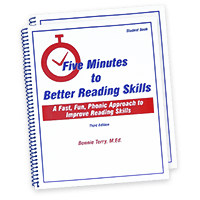
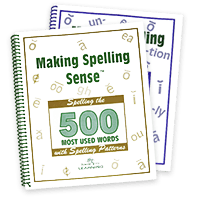
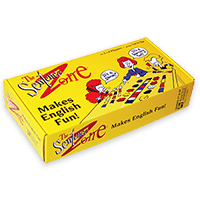
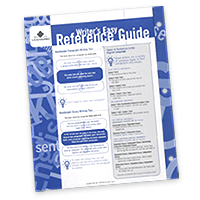
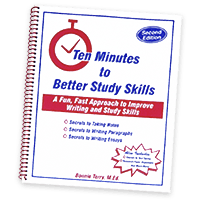
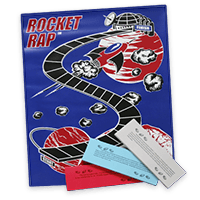
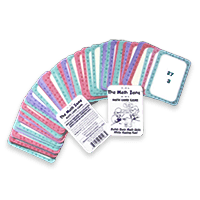
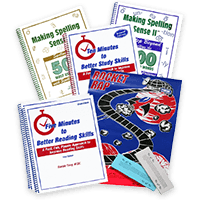
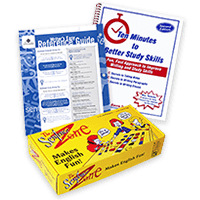
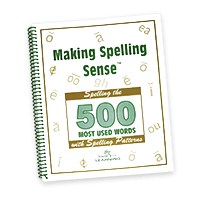









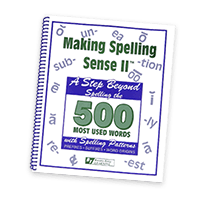
My child has just turned 15 and has auditory processing issues including comprehension and spelling. What sort of help would you suggest as I cannot
imagine him playing sound games etc at this age. Would he be better suited to a computerised program. Would your book 5 minutes to better reading be relevant to his age group?
Thanking you.
Hi Kym,
I totally agree with what you are saying about ‘playing sound games’. There are several things you can do to help your son. There are some computerized programs but I like using a more interactive approach. When you use an interactive approach your son benefits from modeling as well as gets immediate feedback from you and is able see his progress daily. Here are several suggestions – I’ve done all of these with GREAT results with high school students.
1. You read content info to him or have your son listen to an audio tape (chunking the time – 5 minutes or so at a time). Then have him takes quick notes from what he heard using the fill-in-the-blank forms from Ten Minutes to Better Study Skills. The next day, have your son turn the quick notes into a summary paragraph using the forms from Ten Minutes to Better Study Skills. There are a lot of forms to choose from that help kids to take notes while they are listening as well as reading info. Practicing note taking to auditory stimulus is critical because as he gets older he will have more and more lectures in the classroom.
[I had a high school student that really struggled with this and after using the forms she started to do really well in her classes. Without the structure the forms provided, her life was much more difficult.]
2. Play the Comprehension Zone – for auditory comprehension – see the article on it here. See high schoolers + younger siblings play it here. The game comes with 3 reading levels: 2-3rd; 4th-6th; and 7th-12th grade levels.
3. Use Making Spelling Sense and Making Spelling Sense II to work on both spelling and auditory processing skills simultaneously – the books are created so all ages can use them – there is nothing ‘cutesy about them.’ I purposely designed all of my books and games for all ages – I’ve always taught from K – adult and I figured the younger students would feel like they could use older kids stuff and the older students wouldn’t feel like they had to use little kid stuff.
4. Five Minutes to Better Reading will improve fluency, accuracy, and covers every auditory phonemic component in the English language. Many adult literacy groups use it. I have had even 54 year old students use it and make progress for the first time in their lives with it. Here I’m using Five Minutes to Better Reading Skills with a 6th grader. (She is small for her age.)
5. There will be a Free Private Exclusive Training Call where I’ll be giving a lot of tips out in the next few weeks. I will be posting information on it on the blog as soon as the details are worked out.
Hope this helps.
Bonnie Terry, M. Ed., BCET
Interactive software can be a motivating way to help a child develop auditory processing skills. Click here to learn more:
http://www.hearbuilder.com/?lid=B98E1D3D&